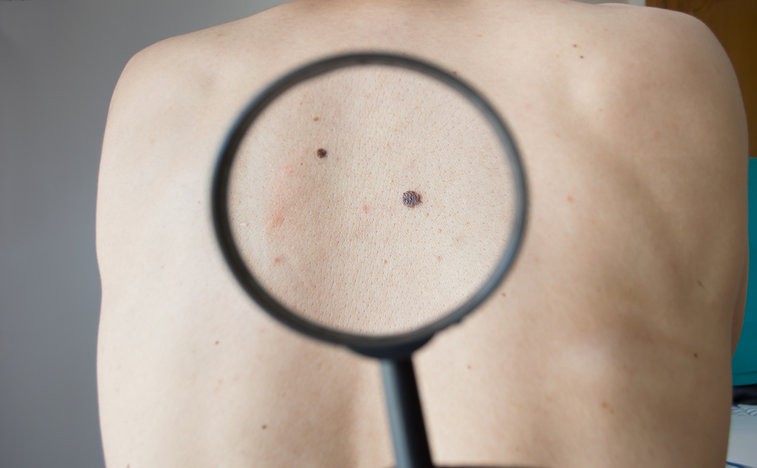Provectus Biopharmaceuticals of Knoxville, Tenn., has confirmed the first dosage of PV-10 in two clinical trials to patients with both Stage 3 locally advanced cutaneous melanoma and Stage 4 metastatic melanoma.
Both trials are currently recruiting patients.
Provectus Chief Technology Officer Eric Wachter said in a press release, “With patients starting treatment in both of these studies, the clock is ticking to interim results and ultimately the completion of these studies. Our recruitment activities are moving ahead and we are hopeful that these studies will play critical roles in demonstrating effectiveness and safety of PV-10 in melanoma.”
The Phase 1b/2 clinical trial of PV-10, in combination with Merck’s anti-PD-1 therapy Keytruda (pembrolizumab) in patients with Stage 4 melanoma is an international, open-label, sequential phase study of intralesional PV-10 in combination with systemic immune checkpoint inhibition.
Candidates for pembrolizumab include Stage 4 metastatic melanoma patients with at least one injectable cutaneous or subcutaneous lesion.
A maximum of 24 people will be enrolled in the ongoing Phase 1b part of the study, and each subject will receive the combination PV-10 and pembrolizumab; in the subsequent phase of the study, up to 120 participants will be randomized in a 1:1 ratio to be administered either the combination therapy or pembrolizumab alone – the number of participants might change, based on the emerging evidence of preliminary efficacy and effect size from Phase 1b.
Initial PV-10 will be administered on study day 1 for up to 13 weeks – corresponding to the investigational treatment phase – and may be re-administered at three-week intervals. Pembrolizumab will be administered at three-week intervals per prescribing information, starting on study day 1 until a maximum of 24 months or until disease progression, toxicity requiring discontinuation of the study treatment, or termination of the study.
Response assessment in both phases of the study will be based on progression-free survival (PFS) using RECIST 1.1 criteria.
“Current research suggests that using anti-cancer drugs in combination can have additive or synergistic effects that can improve the outcomes patients experience,” Wachter said. “Keytruda and PV-10 together may prove more effective than either agent alone in treating certain cases of melanoma. We believe that our current Phase 3 study that tests PV-10 on its own for Stage 3 patients is designed to prove its effectiveness, but we also believe that we should examine combination therapies to maximize potential benefit to patients, especially those with advanced disease.”
The Phase 3 clinical trial for Stage 3 cutaneous melanoma is an international multicenter, open-label, randomized controlled trial (RCT) of single-agent IL PV-10 versus systemic chemotherapy, designed to assess treatment of locally advanced cutaneous melanoma in BRAF V600 wild-type patients whose treatments have failed or are not otherwise candidates for receiving ipilimumab or another immune checkpoint inhibitor.
The assessment of effectiveness will be set by comparing progression-free survival between all subjects in two study arms:
- Subjects in the PV-10 arm will receive PV-10 in all their melanoma lesions;
- Subjects in the comparator arm will receive dacarbazine or temozolommide, at the investigator’s preference or local availability of the agent.
The primary endpoint measurement of progression-free survival will be assessed every 12 weeks up to 18 months using RECIST 1.1 criteria. Secondary endpoints will measure the complete response rate and its duration within the same time frame, and overall survival (OS), also every 12 weeks up to 18 months. Tolerability and safety will also be assessed, by monitoring the duration, severity, frequency, and attribution of adverse events and evaluating changes in lab values and vital signs.
To see a list of all three sites still recruiting patients and four additional sites approaching the opening of enrollment, check Provectus’ press release.
“We are currently finalizing amendments to the protocol that will refine the eligible patient population, consistent with a trial to be expanded this year beyond our historic base in the U.S. and Australia, and to afford additional flexibility in choice of comparator to address the changing treatment options available to patients globally,” Wachter said.


